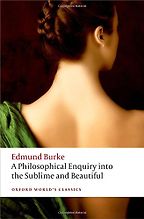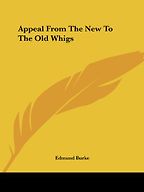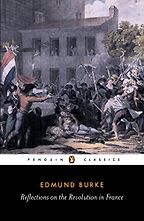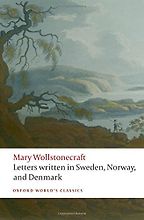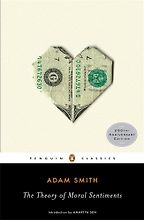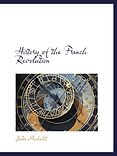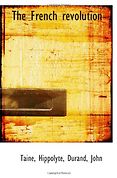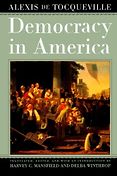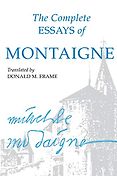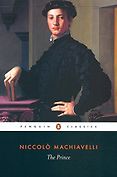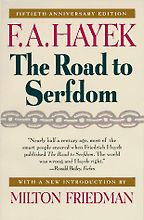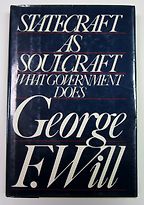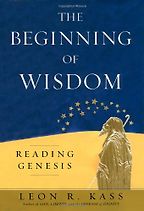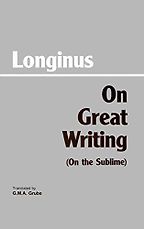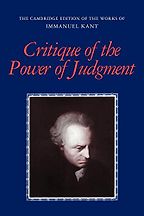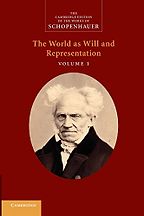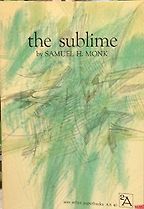Books by Edmund Burke
“I think he belongs on this list as he offers an original scientific—we might say physiological—investigation of the sublime and the beautiful, while at the same time holding on to an objectivist view somehow. So we get both the subjective side and the objective side in one theory. He gives us a list of qualities that are supposed to elicit the sublime. So: obscurity, darkness, towering heights, irregularity, being hidden and unknown, and so forth. Think of entering a cave, something like that. This idea was very influential on Gothic writers like Mary Shelley and Ann Radcliffe.” Read more...
Robert Clewis, Philosopher
Appeal from the New to the Old Whigs
by Edmund Burke
This book was published in 1791. In a way it’s not a book, but a kind of pamphlet, though quite long, and it was a response to critics. The chief critic he responds to, though he actually never names him, is Thomas Paine.
“Prior to The Reflections, Burke was thought of as a friend of liberty. He had been very sympathetic to the American cause and Wollstonecraft defended him, and others, in a review. Also, this would not have been known to her or to anyone else, but Burke wrote an unpublished critique of the laws pertaining to Ireland. He was seen as one of them. When the Reflections came out and he becomes the champion of private property, they think of him as a turncoat.” Read more...
The Best Mary Wollstonecraft Books
Sylvana Tomaselli, Historian
Interviews where books by Edmund Burke were recommended
-

1
Reflections on the Revolution in France
by Edmund Burke -

2
A Philosophical Enquiry into the Sublime and Beautiful
by Edmund Burke -

3
A Vindication of the Rights of Men and A Vindication of the Rights of Woman
by Mary Wollstonecraft, edited by Sylvana Tomaselli -

4
Letters written in Sweden, Norway, and Denmark
by Mary Wollstonecraft -

5
The Theory of Moral Sentiments
by Adam Smith
The Best Mary Wollstonecraft Books, recommended by Sylvana Tomaselli
The Best Mary Wollstonecraft Books, recommended by Sylvana Tomaselli
Mary Wollstonecraft lived by her pen and wrote trenchant critiques of the role of women and marriage in late 18th century British society. She died aged 38, a few days after giving birth to her second daughter, Mary Shelley. She is often remembered for writing the Vindication of the Rights of Woman, but it was not in fact her best book, says Cambridge intellectual historian Sylvana Tomaselli. Here, she recommends books to read to get a good understanding of the extraordinary Mary Wollstonecraft, and the writers she was both influenced by and reacting against.
-

1
History of the French Revolution
by Jules Michelet -

2
The French Revolution
by Hippolyte Taine -

3
Democracy in America
by Alexis de Tocqueville -

4
Reflections on the Revolution in France
by Edmund Burke -

5
The Complete Essays of Montaigne
Michel de Montaigne (trans. by Donald M. Frame) -

6
The Prince
by Niccolo Machiavelli
The best books on The French Revolution, recommended by Peregrine Worsthorne
The best books on The French Revolution, recommended by Peregrine Worsthorne
For anybody wanting to go into politics a mastery of the French Revolution is an enormous help and a knowledge of history essential, says Peregrine Worsthorne, the columnist and former editor of Britain’s Sunday Telegraph. He recommends the best books on the French Revolution, both for and against.
The best books on Freedom Isn’t Enough, recommended by Yuval Levin
The Founder and Editor of National Affairs Magazine speculates how the founding fathers of Conservatism might have been nervous about Sarah Palin and the Tea Party movement
-

1
On the Sublime
by Longinus -

2
A Philosophical Enquiry into the Sublime and Beautiful
by Edmund Burke -

3
Critique of the Power of Judgment
by Immanuel Kant -

4
The World as Will and Representation
by Arthur Schopenhauer -

5
The Sublime: A Study of Critical Theories in XVIII-Century England
by Samuel Monk
The best books on The Sublime, recommended by Robert Clewis
The best books on The Sublime, recommended by Robert Clewis
Whenever we go in search of rugged landscapes, thundering waterfalls or awesome vistas, we are in search of ‘the sublime’—an aesthetic quality that has been the subject of significant philosophical, artistic and psychological study. Here, philosopher Robert Clewis talks us through the landmark studies of the sublime, and makes some recommendations for those seeking introductory books on the subject.
